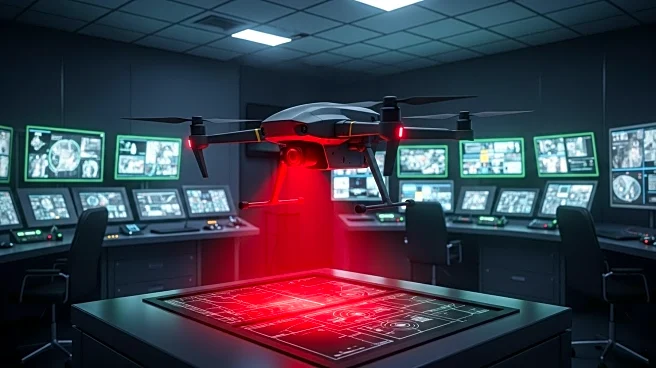What's Happening?
Security Operations Centers (SOCs) are increasingly adopting artificial intelligence (AI) to manage the overwhelming number of security alerts they receive daily. According to a survey by Prophet Security, 55% of security leaders are already using AI for alert triage and investigation, and 60% plan to evaluate AI SOC solutions within the next year. The survey indicates that AI could handle more than half of the SOC workload in the next three years, with key use cases including alert triage, detection engineering, and threat hunting. However, there is a tendency to rely on human intervention for remediation and incident containment, as AI's role in these phases is seen as less effective. The adoption of AI is driven by the need to alleviate alert fatigue among SOC analysts, who are often overwhelmed by the sheer volume of data and alerts, leading to missed detections and burnout.
Why It's Important?
The integration of AI into SOCs is significant as it promises to enhance the efficiency of security operations by automating repetitive tasks, allowing analysts to focus on high-value work. This shift could potentially reduce the risk of missed detections and improve the overall security posture of organizations. However, the reliance on AI also raises concerns about the need for human oversight, as AI systems may not fully understand the nuances of security threats. The balance between AI and human intervention is crucial to ensure effective threat detection and response. As cybercriminals increasingly use AI to enhance their attacks, SOCs must adapt by employing AI defensively to maintain security and protect sensitive data.
What's Next?
Organizations are expected to continue evaluating and integrating AI solutions into their SOCs, with a focus on improving detection and response capabilities. Training and equipping SOC analysts to work alongside AI effectively will be essential to maximize the benefits of AI while mitigating its limitations. As AI technology evolves, SOCs will need to adapt their strategies to counter increasingly sophisticated cyber threats. The ongoing development of AI-driven security solutions will likely lead to more advanced and efficient SOC operations, but the need for human judgment and oversight will remain critical.









